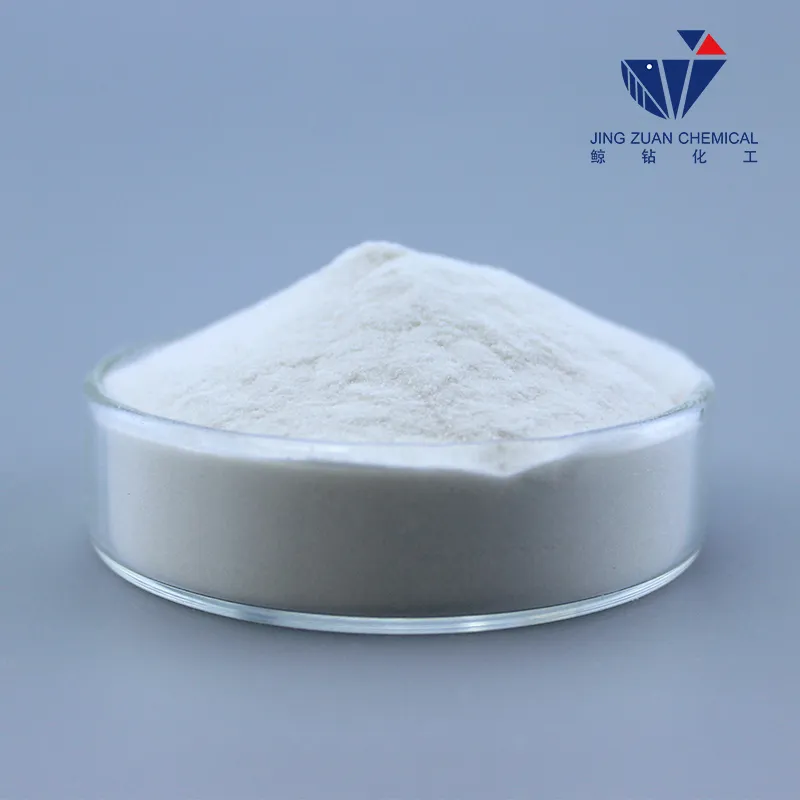
Oct . 09, 2024 06:47 Back to list
Exploring the Versatility and Applications of Hydroxyalkyl Cellulose in Modern Industries
The Versatile Applications of Hydroxyalkyl Cellulose
Hydroxyalkyl cellulose (HAC) is a non-ionic cellulose derivative that has gained prominence in various industrial and pharmaceutical applications due to its unique properties. A water-soluble polymer, HAC is formed by the modification of cellulose through hydroxyalkylation, which introduces hydroxyalkyl groups into the cellulose structure. This modification not only enhances its solubility but also broadens its functionality, making HAC an essential ingredient in numerous formulations ranging from food products to cosmetics and pharmaceuticals.
One of the most significant attributes of hydroxyalkyl cellulose is its excellent thickening and stabilizing capabilities. In the food industry, HAC is utilized as a thickener and texturizer in various products, including sauces, dressings, and dairy alternatives. It provides viscosity and mouthfeel without significantly altering the taste or nutritional profile of the food product. This functionality is particularly valuable in the production of gluten-free and low-fat foods, where maintaining texture and stability can be challenging.
In the pharmaceutical sector, HAC serves as a critical excipient in drug formulation. Its ability to form gels and retain moisture makes it suitable for use in controlled-release formulations. This property allows for the gradual release of active ingredients in the body, enhancing the efficacy of medication while minimizing side effects. Additionally, HAC is often employed as a binding agent and film-forming agent in tablets and capsules, ensuring uniformity and stability of the dosage forms.
hydroxyalkyl cellulose

The cosmetic industry has also embraced hydroxyalkyl cellulose for its multifunctionality. It acts as a thickening agent in lotions, creams, and gels, improving their texture and application properties. Furthermore, HAC enhances the sensory experience of personal care products by imparting a smooth and luxurious feel on the skin. Its water-retention properties help in formulating moisturizing skin care items, ensuring that hydration is maintained longer. Notably, due to its non-toxic nature, HAC is suitable for sensitive skin formulations, further expanding its market appeal.
Beyond these primary applications, hydroxyalkyl cellulose is also finding its place in agriculture and horticulture as a soil conditioner and water retention agent. By improving soil structure and moisture retention, it can help in sustainable agricultural practices, especially in areas prone to drought.
Hydroxyalkyl cellulose is also environmentally friendly. As a plant-based polymer, it aligns with the growing trend towards sustainable and biodegradable materials. Its biodegradability makes it an attractive alternative to synthetic polymers, contributing to reduced environmental impact in various applications.
In summary, hydroxyalkyl cellulose is a remarkable and versatile polymer that spans a wide array of industries. Its unique properties—such as thickening, stabilizing, and moisture-retaining capabilities—render it invaluable in food, pharmaceuticals, cosmetics, and agriculture. As the demand for sustainable and effective ingredients continues to rise, HAC will likely see an increase in its applications and innovation, solidifying its position as a crucial ingredient in many formulations. The future of hydroxyalkyl cellulose looks promising, as it adapts to meet the evolving needs of various sectors while contributing to sustainability efforts.
-
Versatile Hpmc Uses in Different Industries
NewsJun.19,2025
-
Redispersible Powder's Role in Enhancing Durability of Construction Products
NewsJun.19,2025
-
Hydroxyethyl Cellulose Applications Driving Green Industrial Processes
NewsJun.19,2025
-
Exploring Different Redispersible Polymer Powder
NewsJun.19,2025
-
Choosing the Right Mortar Bonding Agent
NewsJun.19,2025
-
Applications and Significance of China Hpmc in Modern Industries
NewsJun.19,2025







